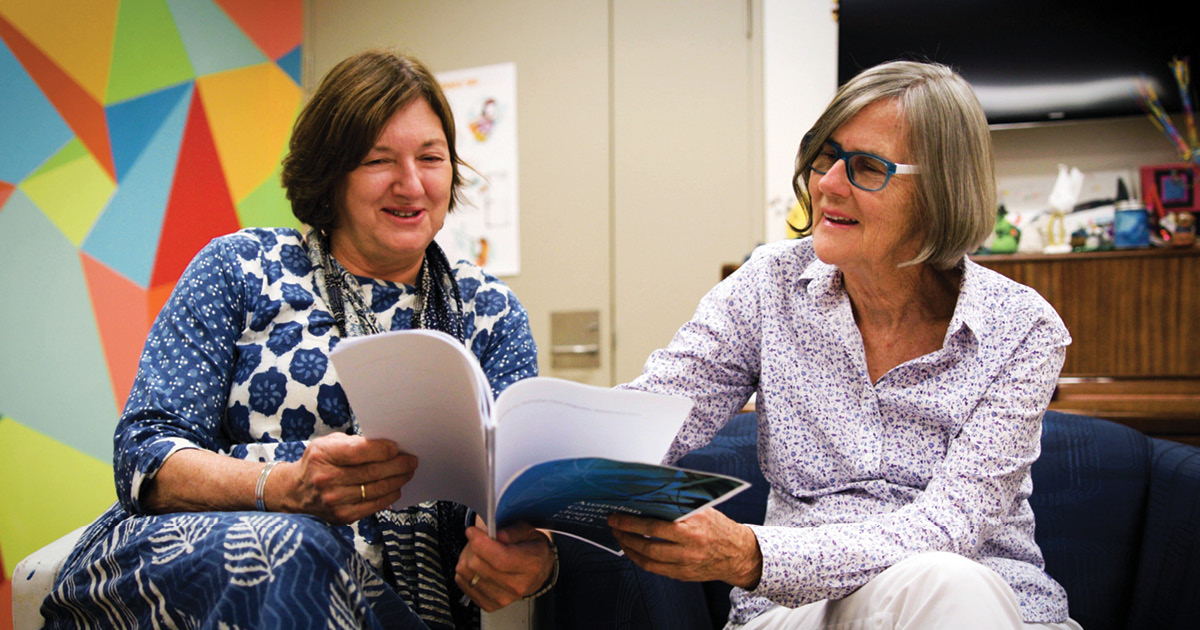Search

Nearly 170 years ago a British doctor applied geospatial mapping to identify the source of a cholera outbreak in central London.

A website providing the latest research and resources on Fetal Alcohol Spectrum Disorder (FASD) is helping parents, educators, health professionals and policy makers navigate the complexities of the neurodevelopmental impairment condition.
Research
Randomised controlled trials of behavioural nudges delivered through text messages to increase influenza and COVID-19 vaccine uptake among pregnant women (EPIC study) in AustraliaInfluenza and COVID-19 vaccine uptake among pregnant women is sub-optimal. We assessed the effectiveness of a multi-component behavioural nudge intervention to improve COVID-19 and influenza vaccine uptake among pregnant women.
Research
Small-area geographical variation in the prevalence of diabetes amongst Australian youth aged <20 years in 2021To characterise small-area geographical variation in the prevalence of diabetes in Australian youth. A combined statistical reconstruction and small-area estimation algorithm was applied to privacy-modulated data from the 2021 Australian Census.
Research
Effectiveness of current digital cognitive behavioural therapy for insomnia interventions for adolescents with insomnia symptoms: A systematic review and meta-analysisSleep problems occur in up to 20%-45% of adolescents. This systematic review and meta-analysis examined the effectiveness of digital sleep interventions, based on cognitive behavioural therapy for insomnia, for adolescents with insomnia symptoms. The objective was to synthesise and quantify, through meta-analyses, changes in sleep following completion of a digital sleep-based intervention.
Research
Clinical Characteristics and Outcomes of Central Nervous System Tumors Harboring NTRK Gene FusionsTropomyosin receptor kinase (TRK) fusions are detected in less than 2% of central nervous system tumors. There are limited data on the clinical course of affected patients.
Research
SARS-CoV-2 Infection and Childhood Islet AutoimmunityThis cohort study examines whether there is a temporal association between SARS-CoV-2 infection and the development of islet autoimmunity among Australian children with a first-degree relative with type 1 diabetes.
Research
Change in Dental Visits Among Eligible Children Under the Impact of the Child Dental Benefits Schedule in AustraliaIn Australia, although there have been some improvements, child oral health continues to be a major public health issue. The Australian Government introduced the means-tested Child Dental Benefits Schedule (CDBS) in 2014 to support access to dental services for children and adolescents aged 0-17 years from low-income families.
Research
Characterising symptomatic substates in individuals on the psychosis continuum: a hidden Markov modelling approachTo improve early intervention and personalise treatment for individuals early on the psychosis continuum, a greater understanding of symptom dynamics is required. We address this by identifying and evaluating the movement between empirically derived attenuated psychotic symptomatic substates-clusters of symptoms that occur within individuals over time.
Research
Measuring cognitive and affective empathy across positive and negative emotions: psychometric properties and measurement invariance of the Perth Empathy ScaleEmpathy, a complex and multidimensional construct essential for social functioning and mental health, has been extensively studied in both research and clinical settings. The Perth Empathy Scale (PES), a recently developed self-report measure, assesses cognitive and affective empathy across both positive and negative emotions and is based on the self-other model of empathy. This study aimed to evaluate the psychometric properties of the Persian version of the PES in large Iranian sample.
